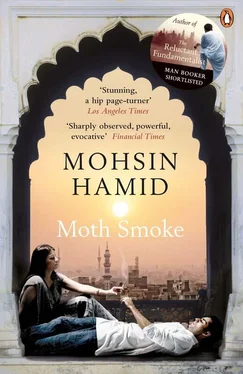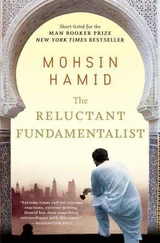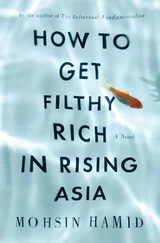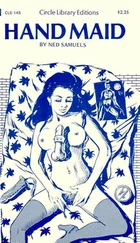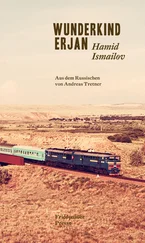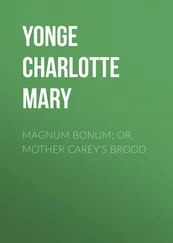A boy brings in another round of tea, our second in ten minutes, and sets the tray on top of my c.v. Butt saab offers me a cigarette that I accept, but my attempt to match his French inhale gets caught somewhere up my nose and makes my eyes water. I content myself with a smoke ring instead.
Outside the bank I sit in my car and watch them go in, guys my age in blue shirts and light suits. Sunglasses, longish hair slicked back. Bored, a little sluggish after lunch, but comfortably certain of an afternoon that won’t stretch out too long and a paycheck at the end of the month. I never particularly liked my job, and wanting now what I didn’t like but once had is enough to make me look down when former colleagues glance in my direction. It’s too hot to sit in my car, so I turn the key in the ignition and head home, my perspiration smelling of an old iron and too much starch.
On Sunday I go to the weekly family luncheon. I tend to avoid these things because they depress me. But I make an exception today, because I’m bored and a little lonely, and I don’t feel like sitting around the house by myself with nothing to do. Besides, my cash is running low and I could use a free meal.
The family luncheons are invariably at Fatty Chacha’s place. My house is small, but my uncle’s is smaller. He has no satellite dish, one car, and three kids, and his wife is so quiet that Dadi, who lives with them, calls her daughter-in-law ‘the philosopher.’ Dadi is the real spirit behind these get-togethers. She hates being separated from family, hates rifts and divisions, maybe because she’s lost so much to partitions: her husband on a train from Amritsar to Lahore, and her eldest son, my father, in Bangladesh.
When I walk into the house through the open front door, Dadi, Fatty Chacha, my aunts – Tinky Phoppo and Munni Phoppo – and their spouses and children are already eating. They look at me in surprise and then surge in a collective welcome that leaves my cheeks damp and marked with lipstick and my right hand a tad sticky from the food they were consuming.
It’s all a little too eager. I sense something somber sitting behind their enthusiasm, something not-so-normal behind their normality. A little paranoia crawls into my lap, purring loudly, making me think maybe I’m the cause, reminding me how obvious it must be that my life is going nowhere.
My cousin Jamal gets up so I can sit, but I wave him back down.
‘Come here,’ Dadi says, patting the arm of her sofa.
‘Yes, Dadi?’ I say, sitting there, my head several feet above hers.
‘Where are you these days?’ she asks.
‘Where am I these days?’
‘Have you found a job?’
‘Not yet.’
‘When are you getting married?’
‘As soon as you find me someone, Dadi.’
‘Two such lovely girls are sitting right here.’
Tinky Phoppo smiles. Her daughters blush and look down.
‘Let him eat,’ Fatty Chacha says, handing me a plate piled high with food.
‘Do you need any money?’ Tinky Phoppo’s husband asks, his wife’s elbow pressed firmly into his side. He isn’t corrupt, so they survive on his pitiful salary and a small inheritance, including the Swiss watch that he likes to drop into a glass of water from time to time to demonstrate that it’s waterproof and therefore authentic.
I start eating. ‘I’m okay for now,’ I lie, because they have no cash to spare.
Muhammad Ali, Fatty Chacha’s son, tugs on my sleeve. ‘Daru bhai, do boxing with me.’
‘Show me what you know,’ I say.
He puts on a few moves. Not bad for a six-year-old. ‘Amazing,’ I say. ‘You’ll be better than Muhammad Ali.’
‘I am Muhammad Ali,’ he points out.
‘The greatest boxer ever was also named Muhammad Ali,’ Fatty Chacha explains.
Muhammad Ali laughs. ‘Noooo,’ he says.
‘Yeeees,’ says his dad.
Fatty Chacha was a boxer when he was younger, although to look at him now, you wouldn’t guess it. I think he was a bantamweight, but he’s since put on a generous paunch, so he’s basically a big belly with skinny legs and arms. He learned from my father, who learned from Dada. And Fatty Chacha taught me.
Jamal extends a plate to me and says, ‘Mango?’
I cut one open and eat it with a roti.
Dadi nods in satisfaction. ‘This one is really my grandchild,’ she says.
‘I’m also really your grandchild, Dadi,’ Muhammad Ali says, grabbing her from behind.
‘Of course, of course,’ she says, laughing. ‘You are all my grandchildren.’
Munni Phoppo looks at Jamal anxiously, but he gives me a brave wink. Jamal knows he’s adopted, and he makes no bones about being happier with his fingers on a computer keyboard than in boxing gloves. Maybe he’ll be the first Shezad male to make a success of his life.
I wink back at him.
When we’re done eating, Dadi tells me that her shoulder is hurting again, which is her way of telling me to massage it. She likes my massages. She says I do it like my father did. I bend to my task behind her, pressing away, my eyes on the few wisps of white hair which grow on her bald head. Dadi feels as ancient as she looks, and when she tells me to do something I do it instinctively, as though the command passes to me through my genes rather than my ears.
Except, of course, that I won’t marry one of my cousins.
After the meal is done and the family has finished chatting and digesting, a process which takes a couple of hours, there’s a break in the cricket match we’ve been watching on TV and the clan begins to disperse. Jamal, who’s been learning to drive, demonstrates his reversing technique to me on his way out. Then he pulls away from the house with a little screech, probably for my benefit, and I can see his parents screaming at him as their old VW Beetle zips down the road.
Once my aunts’ families have gone, Fatty Chacha and I go to the children’s bedroom with some tea. The room is small and plastered with fading stickers. The fan above gives a metallic groan on each slow revolution.
‘So, champ,’ Fatty Chacha says, ‘how are things?’
‘Fatty Chacha, I’m not having any luck.’
He shoves his hand inside a box of Marie biscuits. ‘How about my friend?’
‘Butt saab,’ I say, stressing the saab , ‘told me other people were better connected.’
He bites into a biscuit and it breaks, parts of it falling into his lap. ‘That’s ridiculous.’
I shrug.
He brushes some crumbs onto the carpet. ‘I’ll have another talk with him.’
‘It won’t help. He said there was nothing he could do.’ I put down my cup. ‘Fatty Chacha, this tea is awful.’
‘I know. I don’t understand how you can make bad tea, but this new boy manages to do it every day. You don’t know how lucky you are to have Manucci. Here, have a biscuit.’ He offers the box to me.
‘Thanks,’ I say, taking one.
‘Your father was the well-connected one, champ. I don’t know anyone else who owes me a favor and might be of some use to you. But let me make some calls.’
‘Thanks, Fatty Chacha.’ The biscuit is stale, but I eat it anyway.
‘Do you need some money for the time being?’ He offers the box of biscuits again.
‘Could I borrow two thousand?’
Fatty Chacha looks uncomfortable. ‘Of course,’ he says. ‘Let me give you five hundred now, and I’ll take out some money from the bank tomorrow.’
Maybe I should have asked for less, but I don’t want to embarrass him by withdrawing my request and I really need the money. I sit with Dadi for a while, but she’s fast asleep, and as much as I’m enjoying the air-conditioning in the living room, eventually I have to go.
Fatty Chacha insists I take the leftovers with me: three glass bowls capped with tin foil. They make my car smell, and the smell makes me hungry even though I’ve just filled my stomach with as much as I thought it could hold. Lately I’ve been eating more than usual, and I wonder why my body has chosen this moment to give me such an appetite, when I can least afford it. Then again, animals tend to fatten up in anticipation of lean times ahead. I belch loudly as I drive, quite a roar, freeing up some space inside.
Читать дальше
